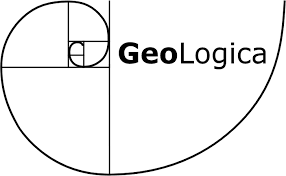
Developing and Delivering a Geothermal Energy Project Business Model
Date: 27 - 30 Nov 2023
Location: Online
Tutor: David Townsend: CEO of TownRock Energy
This course covers all aspects of how to develop and deliver a geothermal project business case from the fundamentals of what a geothermal resource can offer through to financing and raising funds. The course will explore a variety of geothermal resource types and current UK-based project examples.
You will learn to:
- Understand the basics of geothermal resources and their use and applications.
- Recall the fundamental characteristics of geothermal resources and reservoirs.
- Appreciate the UK potential for geothermal projects and the current state of active projects.
- Describe the fundamentals of a geothermal project business case including a project development timeline.
- Assess the financial framework of a geothermal project and how to create a business model and de-risk these projects.
- Understand how emerging technologies can be included as part of a geothermal project.
Critical Minerals for the GeoEnergy Transition
Date: 04 - 06 Dec 2023
Location: Online
Tutor: Lucy Crane: Sustainability and Communications Manager, Cornish Lithium
This course covers all aspects of the crucial role that mineral extraction will play in the energy transition. Building the low carbon technologies required to combat climate change, such as wind turbines, electric vehicles and batteries, will be hugely mineral intensive. The impact of this increased extraction is often overlooked, yet it’s vital that these materials are sourced and extracted in the most responsible manner possible. This course explores where certain critical raw materials are currently produced and the impacts of their global supply chains, as well as examining how new technologies are aiding exploration for and extraction of new deposits. It also discusses challenges faced by responsible sourcing, and the growing importance of ESG within the mining industry.
You will learn to:
- Understand the wider context behind the mineral intensity of the energy transition.
- Define what is a ‘critical’ raw material.
- Describe how new technologies are ‘unlocking’ mineral deposits which have previously been considered unconventional.
- Understand the technical challenges associated with production of certain critical raw materials.
- Describe how environmental, social and geopolitical factors can also influence an element’s ‘criticality’.
- Begin to evaluate the environmental and social impacts of current global supply chains.
- Understand the role mineral extraction has to play in delivering the UN Sustainable Development Goals, alongside various industry operating codes and principles.
- Assess the importance of Environmental, Social and Governance (ESG) factors in project success.
Subsurface Pressures for Injection of Fluids and Gases
Date: 04 - 08 Dec 2023
Location: Online
Tutor: Professor Richard Swarbrick: Manager, Swarbrick GeoPressure Consultancy
This course covers all aspects of subsurface pressures with particular emphasis on pre-drill estimates and the conditions for injection and storage of fluids and gas, including hydrogen and CO2. Methods for estimating pressures from rock and fluid properties will be reviewed, as well as the processes which determine them in the subsurface prior to drilling. The impact of rock strength relative to fluid pressure at depth will also be discussed, in relation to injection rate limitations and storage volumes.
You will learn to:
- Understand how subsurface pressures determine safe injection, storage and production from deep reservoirs.
- Appreciate the processes which govern safe drilling with particular emphasis on pore fluid and fracture pressures.
- Describe how to analyze subsurface pressure data and calibrate to estimate pore pressures from a variety of drilling and logging data.
- Relate regional and local rock stress magnitudes to failure of seals.
- Evaluate how to assess volumes which can be safely sequestered in underground storage.
- Interpret typical pressure profiles in terms of subsurface fluid processes, such as lateral drainage (open aquifers) and lateral transfer (enhanced pressures and a drilling surprise).
- Perform basic pressure prediction calculations and estimate storage volumes.
- Review and critique relevant case study material.
KeyFacts Energy Industry Directory: GeoLogica l KeyFacts Energy news: Training
 KEYFACT Energy
KEYFACT Energy